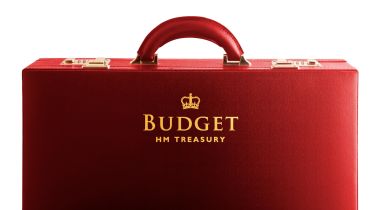Budget 2022: electric car drivers to pay VED and company car tax from 2025
Electric cars will no longer be exempt from VED road tax from 2025, Chancellor of the Exchequer announces

Electric car owners will pay vehicle excise duty (VED) from April 2025, Chancellor of the Exchequer Jeremy Hunt has announced in his Autumn Budget.
New zero-emission cars registered from 1 April 2025 will be liable to pay the lowest first year rate of VED – currently for vehicles with CO2 emissions 1 to 50g/km – which is set at £10 per year. From the second year of registration onwards, they will move to the standard rate, currently set at £165 per year.
Any zero-emission cars that were first registered between 1 April 2017 and 31 March 2025 will also pay the standard annual rate from 1 April 2025.
Electric cars will also lose their exemption from the expensive car supplement in 2025, which is currently set at £355 per year for cars with a list price of £40,000 or more in their second to sixth years of registration.
Zero and low-emission cars first registered between 1 March 2001 and 30 March 2017, which are currently in VED Band A, will move to the Band B rate, which is currently £20 per year. Rates for hybrid vehicles will also be equalised, meaning hybrid car owners will no longer receive a £10 annual VED discount.
Zero-emission vans will move to the rate for petrol and diesel light goods vehicles, currently £290 a year for most vans. Zero-emission motorcycles and tricycles will move to the rate for the smallest engine size, currently £22 per year.
Company car tax for electric cars
The Treasury also announced it would set rates for Benefit-in-Kind (BiK) Company Car Tax until April 2028, continuing to incentivise the take up of electric vehicles. Percentages for electric and ultra-low emission cars (those emitting less than 75g/km of CO2) will increase by one percentage point in 2025-26, 2026-27 and 2027-28, up to a maximum appropriate percentage of five per cent for electric cars and 21 per cent for ultra-low emission cars.
BiK rates for all other vehicle bands will be increased by one percentage point for 2025-26 up to a maximum appropriate percentage of 37 per cent, and will then be fixed in 2026-27 and 2027-28.
Finally, the Budget included a pledge that the Government will extend the 100 per cent First Year Allowance for electric vehicle chargepoints to 31 March 2025 for corporation tax purposes and 5 April 2025 for income tax purposes. The aim is to ensure the tax system continues to incentivise business investment in charging infrastructure.
Edmund King, president of the AA, commented: “Whilst we understand that EVs will need to be taxed, we stress that the road to electrification must not be stalled by excessive taxation.
“There is no doubt the introduction of vehicle excise duty on EVs and making EV company cars less attractive by increasing tax rates, will slow the road to electrification. This may delay the environmental benefits and stall the introduction of EVs onto the second-hand car market. Unfortunately, the Chancellor’s EV taxation actions will dim the incentive to switch to electric vehicles.”
Nicholas Lyes, head of policy at the RAC, added: “After many years of paying no car tax at all, it’s probably fair the Government gets owners of electric vehicles to start contributing to the upkeep of major roads from 2025.
“While vehicle excise duty rates are unlikely to be a defining reason for vehicle choice, we believe a first year zero-VED rate benefit should have been retained as a partial incentive. But we don’t expect this tax change to have much of an effect on dampening the demand for electric vehicles given the many other cost benefits of running one.
“The fact that company car tax increases on EVs will be kept low should also keep giving fleets the confidence to go electric which is vital for increasing the overall number of EVs on our roads.”
Possible fuel duty increase in 2023
Separate to the Budget itself, analysis of the Chancellor's plan from the Office for Budget Responsibility (OBR) has suggested that the current 5p cut in UK fuel duty will remain in place until March 2023 but the duty could then be in line for a 23% increase that would add 12p per litre to the cost of petrol and diesel.
What motoring measures should the chancellor introduce? Let us know your thoughts in the comments…
Find a car with the experts





